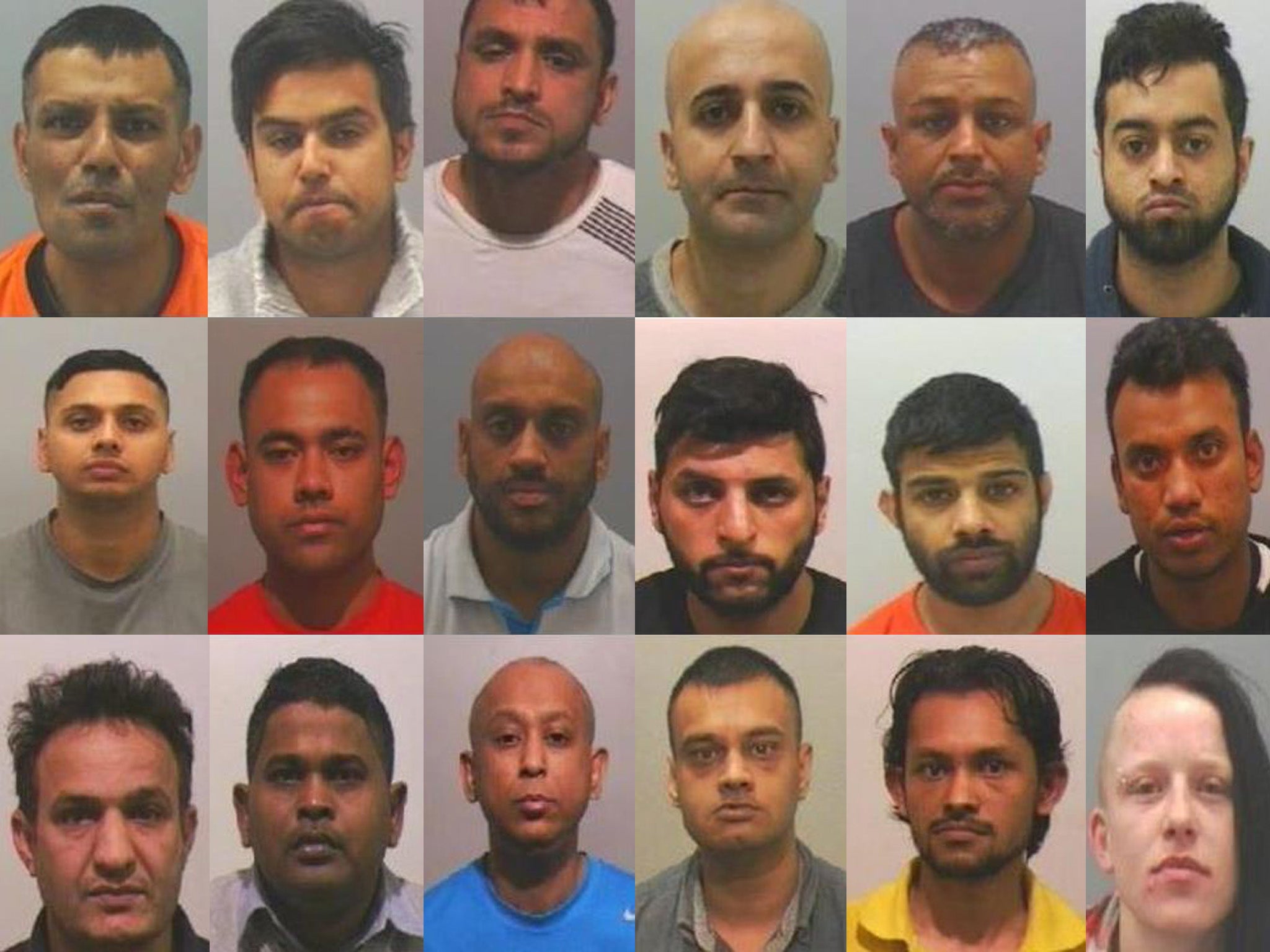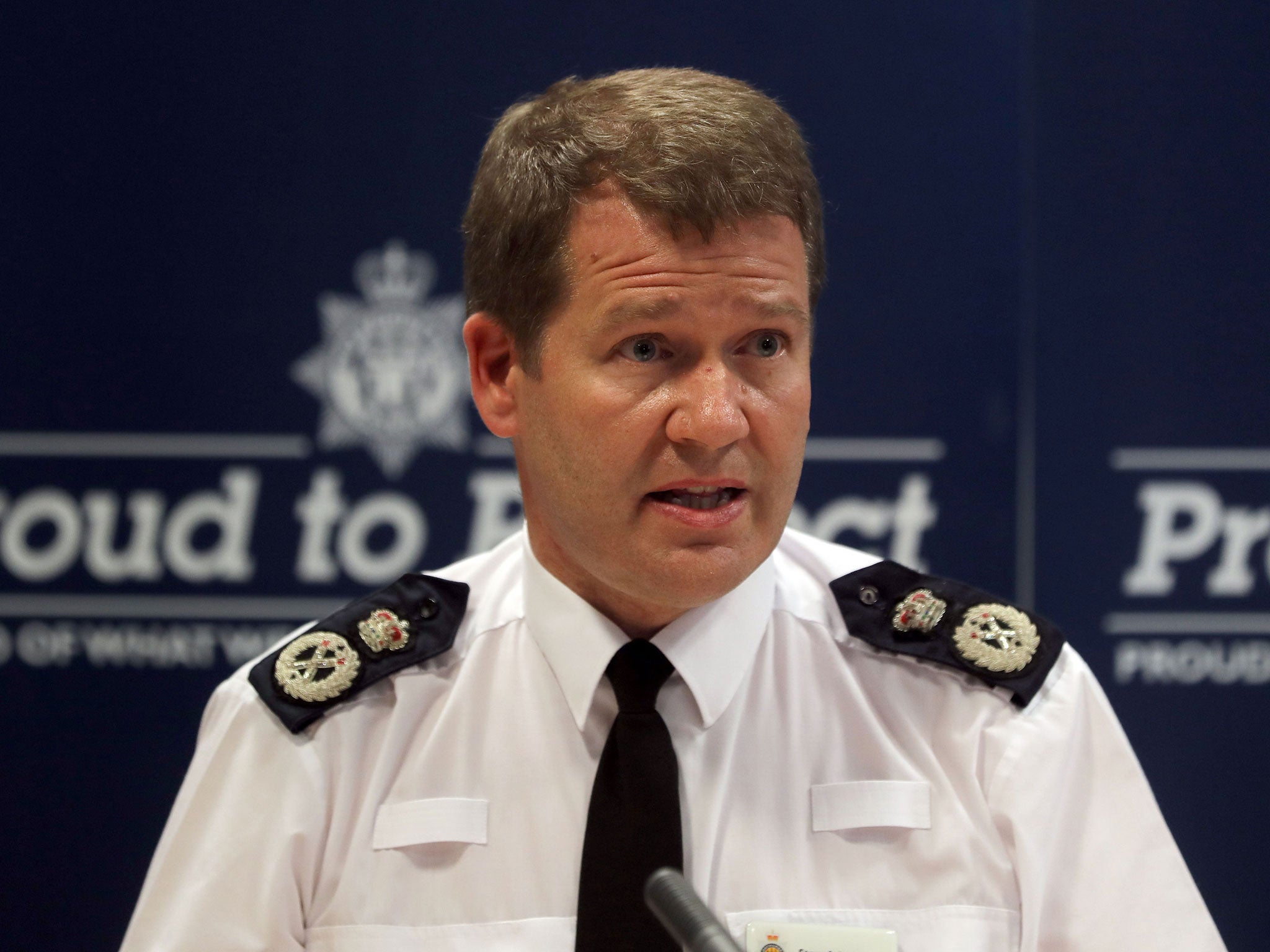Operation Sanctuary: Grooming gangs 'not unique' to Newcastle, UK warned as police deny political correctness claims
'Any area that says it does not have a problem with grooming gangs is simply not looking for it'
The sexual abuse perpetrated by grooming gangs in Newcastle is “not unique” to the city, the head of its council has warned.
An investigation codenamed Operation Sanctuary identified more than 700 victims of abuse that spanned four years in the region, in a similar pattern seen in Rotherham and Rochdale.
The abuse was revealed following the conviction of the remaining defendants in a group of 17 men and one woman convicted of offences including rape, sexual assault, drug crime and trafficking for sexual exploitation.
Pat Ritchie, the chief executive of Newcastle City Council, told a press conference that the victims who came forward “made our communities safer”.
“We do not believe that what we have uncovered in Newcastle is unique,” she added.
“Indeed, there has been evidence of similar offending in many other towns and cities.
“We believe that any area that says it does not have a problem is simply not looking for it and I would encourage all areas to be proactive in their attempts to uncover sexual exploitation.”
Ms Ritchie said “no stone would be left unturned" in Newcastle as the council, police and other agencies continue to disrupt attempted exploitation and support victims.
“Tackling this problem is everyone’s responsibility,” she added.
Operation Sanctuary, which was launched in 2014 after a woman and girl who did not know each other came forward with similar reports of abuse in the West End of Newcastle.
The investigation into modern day slavery, trafficking and sexual exploitation in the region covered by Northumbria Police spawned the smaller Operation Shelter, which resulted in the conviction of 18 members of a grooming gang.
The abuse was revealed after the last defendants were convicted at Newcastle Crown Court on Wednesday, being found guilty of abusing girls as young as 14.
It was the last of four trials that have been underway since 2015 and can now be reported for the first time after reporting restrictions were lifted.
Comparisons were quickly drawn to the grooming scandals in Rochdale and Rotherham, where Theresa May as Home Secretary accused local authorities of allowing “institutionalised political correctness” to hamper their investigation into predominantly British Pakistani offenders.
Investigators have not confirmed whether the majority of victims in Newcastle were also white British women and girls, but the head of Northumbria Police said there was no “political correctness” involved in the investigation of suspects from Bangladesh, Pakistan, Iran, Iraq, Kurdistan, Turkey, Albania and Eastern European.

Chief Constable Steve Ashman told a press conference: “I don’t think it’s for me to point the finger at a particular community.
“We’ve arrested over 400 people as part of Operation Sanctuary over the past three-and-a-half years and they come from just about every single community you can mention.
“It’s an inescapable fact that when you look at the photos coming out of the Operation Shelter trials, most of the offenders are not white, but some of them are.”
Chief Constable Ashman said it was for “every community to ask themselves whether they are doing all everything they possibly can to ensure the attitude to women and girls that we have encountered has no place within in that community”.
“We all have a role to play in that,” he added, urging communities in Newcastle to start “soul searching” to examine how the offenders felt their abuse was acceptable.
Investigators said many of the offenders were working as part of a “conspiracy” and had friends, associates and relatives outside the grooming gang who knew of their activities.
Northumbria Police defended the decision to pay a former child rapist almost £10,000 to spy on “sex parties” where vulnerable girls and young women were given drugs and alcohol and abused.
Chief Constable Ashman said that although the decision to recruit XY would seem “morally repugnant to some”, he would do the same again to gather vital evidence on defendants who were later convicted.
Juries heard how the men would often threaten their victims with violence if they did not take part in sexual activity with them, while others were assaulted when they were incapacitated and unable to resist.

The victims met the men through other friends and social media, police said, with one girl describing a friend as having so many people in her phone that it was “unreal”, mostly known by nicknames.
The men would contact the girls at all hours of the day and night, persistently pleading with them to go to an address to “chill” or inviting them to “sessions”.
Abusers would message the girls to say they had alcohol and drugs for them and would pay for taxis to collect them, buying vodka and drugs including mephedrone and cocaine.
Victims would wake up with men raping or sexually assaulting them, leaving many too traumatised to have relationships.
More than 700 victims were identified in Operation Sanctuary and 108 in the smaller Operation Shelter, investigators said, with 461 suspects interviewed and 93 convictions resulting in combined sentences of over 300 years.
The scale of abuse uncovered, and the fact one of the victims was in local authority care, has prompted a serious case review that will report in December on “what lessons can be learned and how to improve safeguarding”.
Chief Constable Ashman said his force was previously aware of a “small scale” of grooming but did not know its true extent until Operation Sanctuary was launched to proactively find other potential victims with the cooperation of authorities, voluntary groups, bars, taxi drivers, hotels and the public.
“We have thrown the kitchen sink at this, a team of 50 officers have worked on this enquiry for almost three and a half years and continue to do so,” he added. “We have not and will not stop. We have employed every technique available to us covert and overt, in tackling the problem.
“The sexual exploitation of vulnerable people is in my opinion the challenge of our generation. It is a huge task that we are faced with. To date Operation Sanctuary has been the most complex investigation in this forces’ history and has not stopped.
“There is a wider debate to be had as to how this is to be tackled moving forward.”

